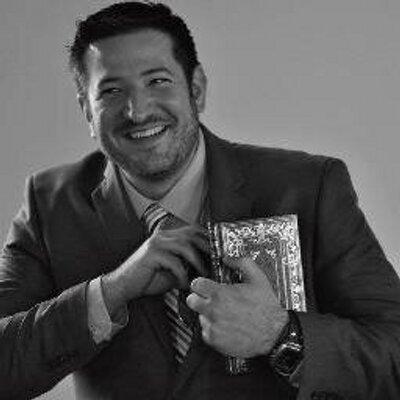Putting the Gospel in the Driver’s Seat
MARCH 12, 2019
The gospel is always an interruption.
Even sometimes of ways of “doing church.” In fact, in these days of widespread consumerism and pragmatism, it is precisely the supernatural hijacking of our human ideas by the supernatural gospel that we desperately need. For that is exactly what Christianity is—a movement arriving from, begun by, sustained in, and heading toward heaven itself. We cannot have real Christianity without the supernaturality of it.
The great Princeton theologian B.B. Warfield concurs:
The religion of the Bible is a frankly supernatural religion. By this is not meant merely that, according to it, all men, as creatures, live, move and have their being in God. It is meant that, according to it, God has intervened extraordinarily, in the course of the sinful world’s development, for the salvation of men otherwise lost.1
It is this extraordinary intervention of normal Christianity that even many successful churches need this very moment.
How do we emerge from a spirit of consumerism and pragmatism and reclaim the essence of biblical Christianity for our churches and their missions to reach the lost? I believe what we need in our day is not to presume the ineffectiveness of the Holy Spirit working through the preached word but to repent of our decades of pragmatic methodology and materialist theology and to reclaim the proclamation of the gospel of Jesus Christ as the power of salvation for anybody, anywhere, any time. The United States desperately needs churches re-committed to the weird, counter-cultural supernaturality of biblical Christianity. And this means a re-commitment to rely on the Spirit working through his prescribed mean, not ours.
Creativity and intelligence can certainly adorn the gospel of grace, but there is no amount of creativity and intelligence that can waken a dead soul. Only the foolishness of the gospel can do that (1 Cor. 1:18). Not even sacrificial good works and biblical social justice can wake a dead soul, for the law has no power to raise in and of itself. Only the foolishness of the gospel can do that. And it is a shame that there are an increasing number of churches(!) that are blanching at the foolishness of the gospel these days. But Paul knows that the hope of the church and the world is the alien righteousness of Christ announced in that scandalous historical headline. “For Christ did not send me to preach the gospel with words of eloquent wisdom,” he says, “lest the cross of Christ be emptied of its power” (1 Cor. 1:17).
Paul knows that too often our creativity and intelligence don’t adorn the gospel, but obscure it. In some church environments, even though unwittingly, they replace it. But the apostle encourages us not to be ashamed—intentionally or even unintentionally —of the gospel, for it is the only power of salvation we’ve been stewarded. There. is. nothing. else. “I have resolved to know nothing among you except for Christ and him crucified” (1 Cor. 2:2).
I know some reckon that steady gospel preaching and revival prayer do not amount to much compared to human ingenuity and industriousness. But the Holy Spirit can do much more than we think or ask. Let’s not run ahead of him.
Excerpted from The Gospel-Driven Church by Jared C. Wilson
Check out our Pastor’s Chat with Jared Wilson today on Key Life!
1 B.B. Warfield, “The Biblical Idea of Revelation,” The Works of Benjamin B. Warfield, Volume 1: Revelation and Inspiration (Grand Rapids, Michigan, 2000), 3.

 Search
Search

